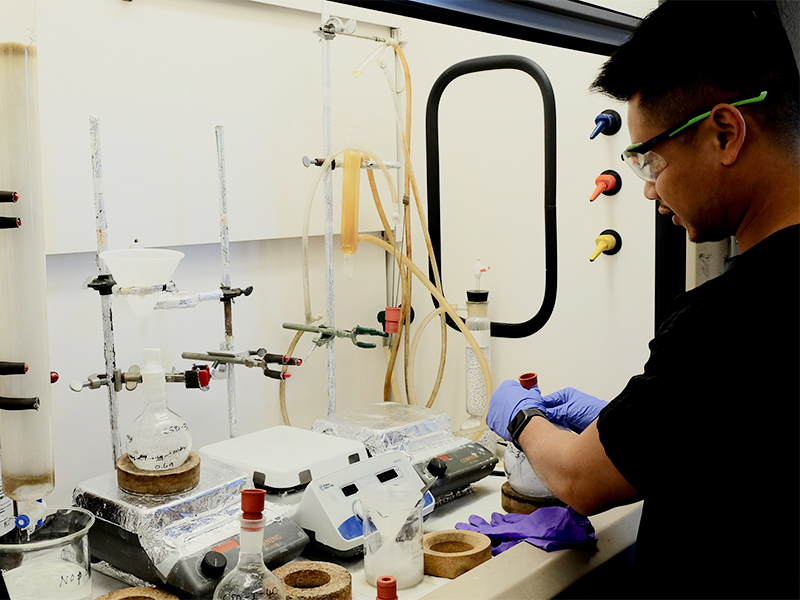Bachelor of Science in chemistry
Pursuing the American Chemical Society-accredited Bachelor of Science degree in chemistry introduces you to the chemical literature and the techniques and challenges involved in a research project. Earning the ACS-accredited BS in chemistry option prepares you to be a professional chemist knowledgeable in the basics of inorganic, organic, analytical and physical chemistry.
BS in Chemistry - Chemistry Option (ACS-Certified)
Bachelor of Science in biochemistry
Pursuing the American Chemical Society-accredited Bachelor of Science degree in biochemistry introduces you to the chemical literature and the techniques and challenges involved in a research project. Earning the ACS-accredited BS in biochemistry option prepares you to be a professional chemist knowledgeable in the basics of inorganic, organic, analytical and physical chemistry.
BS in Chemistry - Biochemistry Option (ACS-Certified)
Bachelor of Science in chemistry - pre-medicine
The BS degree in chemical science provides excellent preparation if you are interested in professional areas including medicine, dentistry, veterinary medicine, optometry or pharmacology.
Bachelor of Science in chemistry with a field major in chemistry/business
WSU’s field major in chemistry/business is yet another option - and one that is unique in the State of Kansas. This program, which requires training in chemistry and in the pertinent aspects of business, prepares you for a career in chemical marketing and sales.
Chemistry/Business Field Major (BS)
Bachelor of Science in chemistry with a field major in biochemistry
The field major in biochemistry requires extensive training in both chemistry and biology, but does not require physical and inorganic chemistry. The field major in biochemistry requires more training in biology than does the BS in chemical science degree. However, this degree also provides excellent preparation for professional
BS in Chemistry - Biochemistry Field Major (BS)
Bachelor of Arts in chemistry
The BA in chemistry degree is a liberal arts and sciences degree requiring fewer hours of chemistry than the BS degree in chemistry. The BA degree prepares students for a wide variety of entry-level positions. By taking additional courses, students may earn American Chemical Society certification. Students pursuing a BA in chemistry are required to take a foreign language and additional courses in the humanities and social sciences.
Chemistry minor
A minor in chemistry from WSU provides you with a basic background in chemistry. The minor is an ideal complement to many science-related degrees and is good preparation for graduate school.
Bachelor of Arts - education
If you’re thinking about teaching chemistry in high school, you should acquire a solid foundation in chemistry while pursuing the BA degree in education.
Bachelor of Science - forensic science
If you’re thinking about a career as a forensic science technician assisting in criminal investigations by collecting and analyzing evidence, you should acquire a solid foundation in chemistry.


